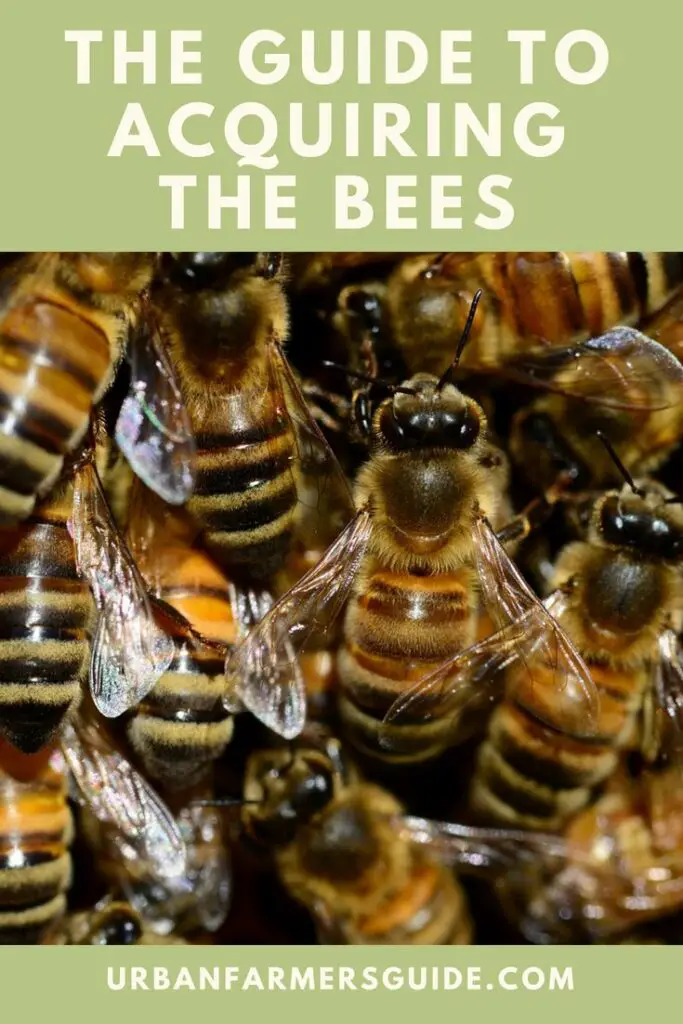The first step to Beekeeping journey is Aquiring the Bees. As long as you aren’t allergic to bee stings beekeeping is a way for someone who doesn’t have a great deal of money and acres of land to take an active role in agriculture.
The start-up expense of the average hive is approximately $300 per hive (you only need one to get begin with). Once you have purchased a hive it can be kept in a remote corner of your back yard, it is not uncommon to see some suburban homes with a bee hive.
How and Where Acquiring the Bees ?
Check Cooperative Extension office
If you are considering starting a beehive the first thing you should do is call your local Cooperative Extension office. They will be able to tell you if you live in an area that restricts keeping bees.
They will also be able to give you the contact information of your states beekeeping organization where you can become a registered beekeeper.
Potential Honey Bee Hive
The next thing you need to do is select a site for your potential honey bee hive.

Acquiring the equipments for Beekeeping
Once you have selected a site for your beehive you will need to go about acquiring the equipment needed to successfully maintain a beehive. Some of the equipment you will need can be purchased used on eBay or 
If you are unable to find the equipment you need online there are several on-line sites where you can purchase equipment. If you need further assistance finding and purchasing a beehive and other beekeeping equipment call your local Cooperative Extension office or the Federation of Beekeepers.
Read more about?The most important Beekeeping Tools
Purchase Beekeepers Gear
Before acquiring bees for your hive it’s important to make sure that you are properly protected, this means you have to purchase beekeepers gear.
Order from Established Apiary
Once your hive is in place and you are confident that everything is in working order it’s time to order your honey bees. The easiest way is to order Honey Bees from an established Apiary.
When Acquiring the bees ?
You should plan on placing you bee order early in the winter, the average beekeeper orders their bees in January and February. The order is typically shipped in March and April. Most Apiary’s ship their bees through the U.S. postal service.
When the bees arrive at the post office your mail carrier will call and ask that you pick up the bees. Very few mail carriers are comfortable driving all over the county with a car full of young angry bees in their car and most bees are healthier if they don’t have to spend several hours in a hot car.
Packaging and Carrying the Bees
When you pick up your bees they should have been packaged in a special carrying case that is designed just for bees. This package will be a wooden framed “house” that has a screen covering the outside.
This packaging allows air to circulate to the traveling bees and keeps handlers, such as post office employees, from getting stung.
When you get your bees, do not be surprised if you see a few dead bees laying in the bottom of the package. Traveling is hard on bees and they can’t all be expected to live through the trip. The rest of the bees should be clutching the sides of the container.
Container: Hive and The Queen Bee
You will notice that one bee in the container has been separated from the rest of the hive.This is your queen bee. The rest of the bees in the container will make up the rest of your bee hives hierarchy. Some Apiaries ship the queen with a couple of nurse bees.
The top of the queen’s container will be covered with piece of sugar candy.
You should also see a container that is filled with a sugar solution. This sugar solution is what the bees feed on while they are traveling. Once you get your bees home offer them something to drink. You do this by taking a spray bottle and covering the container with a very fine covering of water.